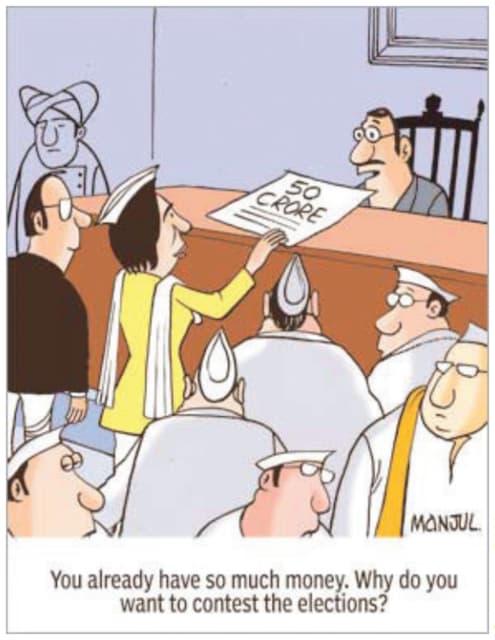Consider the following statements on parties:
A. Political parties do not enjoy much trust among the people.
B. Parties are often rocked by scandals involving top party leaders.
C. Parties are not necessary to run governments.
Which of the statements given above are correct?
Important Questions on Political Parties
On what grounds do people support a political party? Explain.
Read the passage carefully and answer the question below:
What did Kishenji mean by an alternative political formation? The question came up in a conversation between Sudha, Karuna, Shaheen and Gracy, four political activists leading successful political movements in four different nations. Kishenji was regarded as a political philosopher, moral guide, and friend by all four of them. Kishenji argued that: "Movements focused on a single issue are suitable if we wish to achieve limited changes in a particular aspect of life. But if we want to bring about a fundamental social transformation, we would need a political organization".
- Gracy felt that Kishenji never clarified what does he mean by an alternative political formation. She felt that political parties were obsolete instruments for social change.
- Sudha agreed with her and added that the moment one forms a political party they lose the goodwill of the people.
- Karuna added that a lot can be achieved by putting pressure on political parties rather than contesting directly in elections.
- Shaheen disagreed with all of them. He argued that Kishenji wanted all the people's movements to forge a new political party that is different from traditional, corrupt parties.
Kishenji is no more. What would be your advice to these four activists? Should they form a new political party? Can a political party become a moral force in politics? What should that party be like?
Let us apply what we have learned about party systems to the various states within India. There are three major types of party systems that exist at the State level. Can you find the names of at least two States for the Two-party system?
Let us apply what we have learned about party systems to the various states within India. There are three major types of party systems that exist at the state level. Can you find the names of at least two states for the multiparty system?
Why don’t parties give enough tickets to women? Is that also due to a lack of internal democracy?
Does this suggest that in democracies people contest elections only to make money? But isn’t it true that there are politicians committed to the well-being of the people?
Can you identify which of the challenges described in this section is being highlighted in the cartoon? What are the ways to curb the misuse of money and muscle power in politics?

